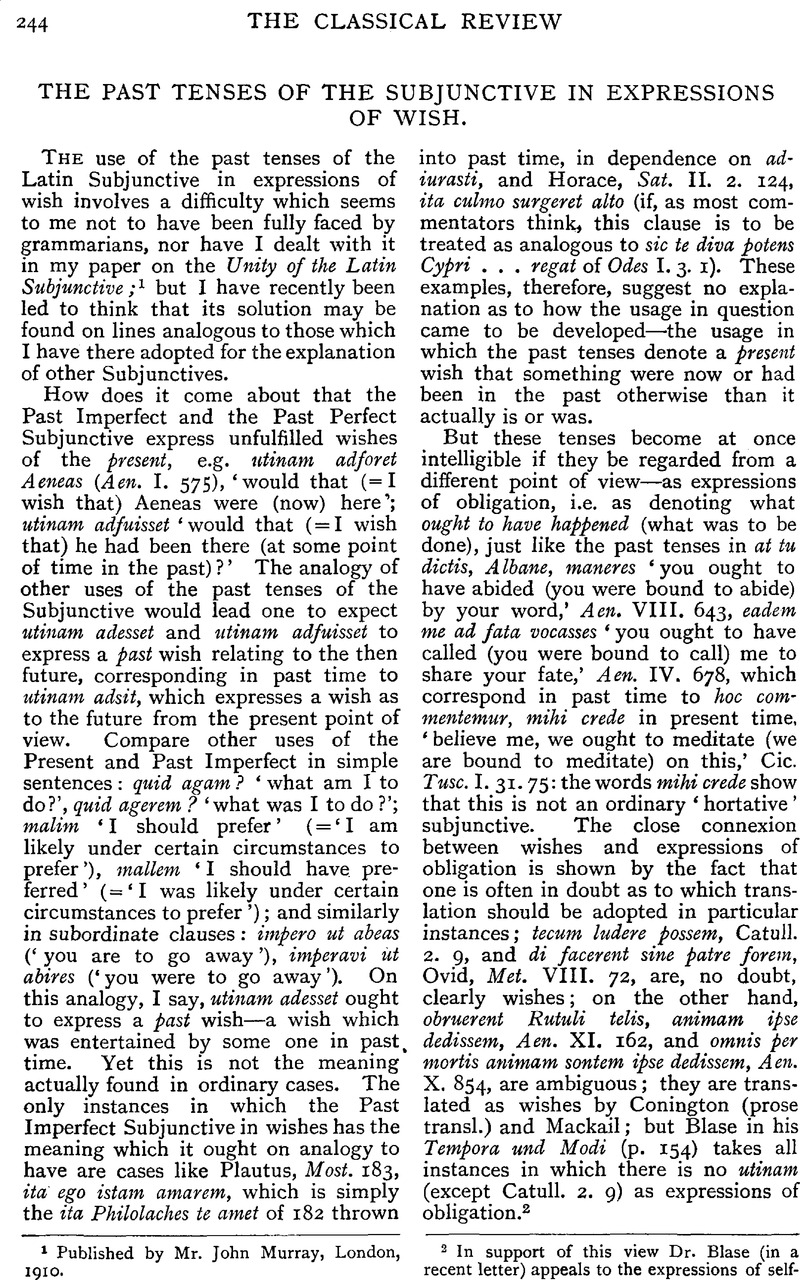No CrossRef data available.
Article contents
The Past Tenses of the Subjunctive in Expressions of Wish
Published online by Cambridge University Press: 27 October 2009
Abstract

- Type
- Original Contributions
- Information
- Copyright
- Copyright © The Classical Association 1911
References
page 244 note 1 Published by Mr. John Murray, London, 1910.
page 244 note 2 In support of this view Dr. Blase (in a recent letter) appeals to the expressions of self-reproach which precede, debuerampoenas (Aen. X. 853), vivendo vici mea fata (Aen. XI. 160), and compares Plaut. Mil. 730, divos dispertisse vitam huinanam aequom fuit; vitam longinquam darent … adimerent. Ovid, Met. VIII. 72 (to which he adds Heroides 10. 133) he also takes as expressions of obligation, remarking that the sense of wish arises from the fact that di facerent is equivalent in meaning to utinam.
page 245 note 1 I have assumed (with most grammarians) that utinam is originally interrogative; but Dr. Blase says he sees no reason why it may not be regarded as indefinite.
page 245 note 2 I have given my reasons in the paper referred to above.
page 246 note 1 I am of course aware that some grammarians would explain this as an expression of Resolve—sciamus =‘ we are resolved to know,’ ‘ we want to know’—but I am sceptical as to this being a fundamental meaning of the Subjunctive, as I have explained in the paper referred to above, p. 24. Thus, for example, maneam opinor (Plaut. Trin. 1136) seems to me to mean not ‘ I think I am resolved to remain’ (which is, indeed, strictly speaking, nonsense), but ‘I think I ought to remain,’ ‘ I think I had better remain’; cf. the instance quoted above from Cic. Tusc. I. 31. 75.


